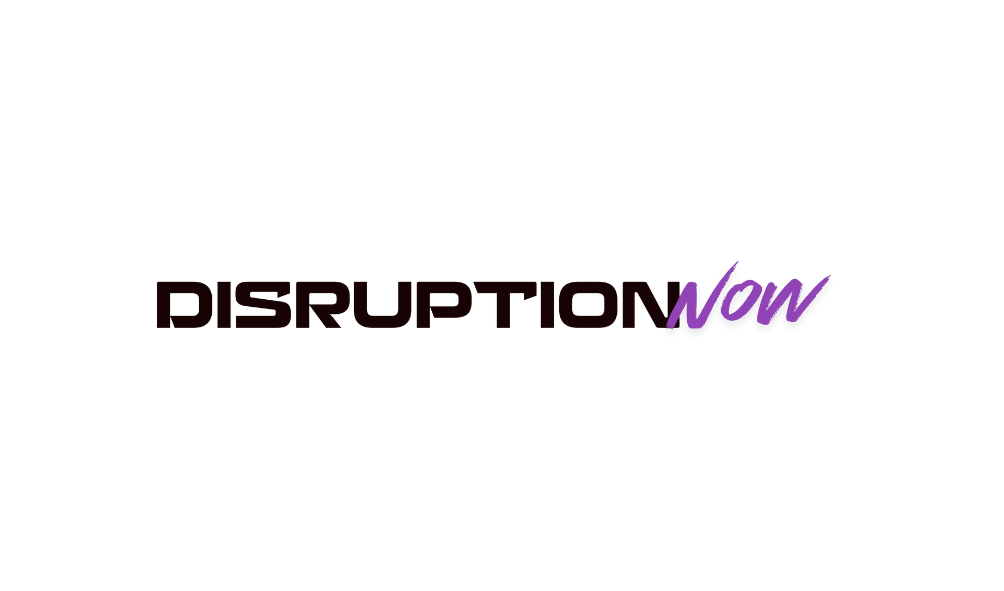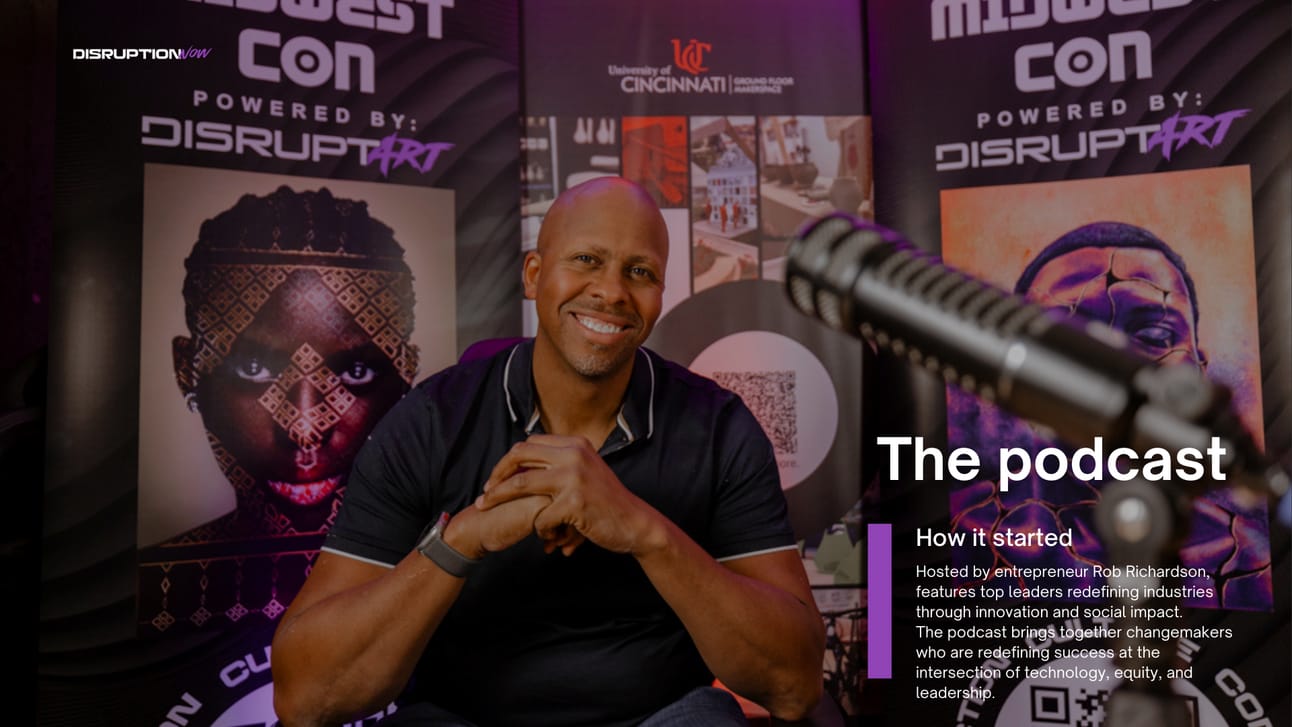- Disruption Now's Newsletter
- Posts
- July 4th, 2040: Rhyme or Revolution?
July 4th, 2040: Rhyme or Revolution?
Reflecting on the past, contemplating the future.

For New Disruptors
Disruption Now is a tech-empowered platform helping elevate organizations in entrepreneurship, social impact, and creativity. Through training, product development, podcasts, events, and digital media storytelling, we make emerging technology human-centric and accessible to everyone.
This week, we reflect on what July 4th teaches us about shaping the future without ignoring the past.
Reflecting on July 4th
When I was a kid, July 4th meant fireworks, cookouts, and staying up late. I didn’t think much about what “freedom” actually meant. I just knew it felt good to be with family, to be outside, to feel like the world was full of possibilities.
As I got older, I started looking around and asking bigger questions:
What will our future be given the current path?
What did people before us fight for, and what are we doing with that freedom now?
July 4, 2040: AI and the Lessons of the Industrial Revolution
What will the world look like in 2040?
Will it rhyme with the past, or will we choose a different verse?
On July 4th, we often reflect on the concept of freedom. But freedom is not just fireworks and cookouts; it’s a choice we make about the future we’re building—and whether we’re brave enough to learn from the past to protect that freedom.
The Industrial Revolution brought unimaginable progress and prosperity, but it didn’t start that way. It was a rocky road we don’t talk about enough. The transition came at a significant cost to those in the midst of it—horrible working conditions, two world wars, the rise of fascism. We have arrived at our current position, but only after generations of struggle.
Today, the speed of AI will make those transitions look slow.
We should be asking:
Are we learning from the past, or will we repeat its mistakes at the scale and speed of AI?
AI, Propaganda, and Division
Are we truly more ideologically divided now than in the 1960s, a decade marked by assassinations, protests, and an unpopular war?
Despite that environment, 46 Democrats and 27 Republicans came together to pass the 1964 Civil Rights Act, as well as many other historic pieces of legislation.
We are not necessarily more divided. We are being driven further apart.
Social media was the canary in the coal mine. It showed us how algorithms could monetize division, rewarding rage while feeding disinformation. We’ve already seen how algorithmic manipulation can fuel chaos—from genocide in Myanmar to polarization across democracies. And that was before generative AI.
Social media didn’t invent division. It monetized it. It created a market for outrage.
AI will supercharge this pattern unless we intervene. Imagine a world where propaganda bots and deepfake humans amplify distrust so subtly you won’t even realize how you’re being influenced.
The problem with AI propaganda is you can’t “win.” The more it learns about you, the more it can manipulate you without you even knowing.
AI Is Borderless
During the Cold War, superpowers tried to manage nuclear risks through export controls and treaties.
We’re trying to do the same with AI.
The U.S. attempted to slow China’s rise in the AI race by restricting exports of advanced chips and semiconductor technology. The idea was to choke off China’s access to the high-powered computing necessary to train cutting-edge models.
But here’s the thing: AI moves at internet speed, and it doesn’t respect borders.
While chip controls may have slowed progress for a moment, innovation found another path. Researchers in China developed DeepSeek, achieving GPT-4-level performance with 90% less computing power than what was previously thought necessary.
They proved that breakthroughs can and will happen anywhere, even when the gates are up.
AI moves at internet speed because it is the internet.
While diplomats debate export controls, teenagers are downloading open-source models that can never be classified because the tech moves too fast.
There are nearly half a million free AI models on Hugging Face alone.
Nuclear weapons took decades to proliferate. AI proliferates in weeks.
AI Is a Coordination Game
Misaligned AI will not respect borders.
A rogue financial algorithm, a bioengineered pathogen, or cascading cyberattacks could hit everyone, everywhere.
Think about the 2008 financial collapse—but at AI speed.
We’re treating AI as a zero-sum game when it’s a coordination game.
In zero-sum games, your win is my loss. In coordination games, if we don’t work together, we all lose.
Stable markets are a coordination game. Pandemic prevention is a coordination game. AI safety is also a coordination game.
My Disruptive Take
So what do we do?
First, we need honesty about where competition is healthy—software, robotics, autonomous cars—and where structured cooperation is non-negotiable: autonomous weapons, AI propaganda, biotech.
Multi-National Treaty on AI Safety
Bring the best AI scientists from around the world into a room regularly. Let them discuss what keeps them up at night —the “oh shit, the AI is doing something we didn’t expect” stuff, not just the political talking points.
Parallel Safety Standards
We don’t need identical systems, but we need shared safety principles, just like airlines share safety protocols across countries. No one wants planes falling out of the sky. The same principle applies to AI.
Create Rules on Propaganda
We have international standards to protect money from counterfeiting. It’s worked.
We need similar protections for the human brain to prevent systematic hacking of our attention and beliefs through AI-driven propaganda and fake humans.
Sources
Reuters (2018) – “U.N. investigators cite Facebook role in Myanmar crisis.”
Reuters (Feb 2023) – “ChatGPT sets record for fastest-growing user base – analyst note.”
Reserve Bank of Australia – The Global Financial Crisis (Explainer)
Policy Magazine (2023) – “‘The Chaos Machine’: Life in the Age of Anti-Reality Propaganda.”
MidwestCon
MidwestCon 2025: From Code to Constitution
Emerging technology is rewriting the rules of society at a faster pace than our laws can keep up.
At MidwestCon 2025, we will explore what it means to align innovation with our values—and how we can shape tech to work for people, not the other way around.
Podcast
Disruption Now Podcast
Want deeper context on these themes? Listen to the Disruption Now Podcast, where we dive into how technology, entrepreneurship, and culture intersect to build a more equitable and creative future.
Keep Disrupting,
Rob, CEO of Disruption Now & Chief Curator of MidwestCon
